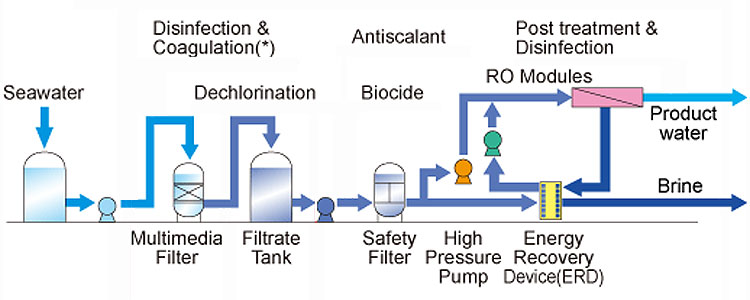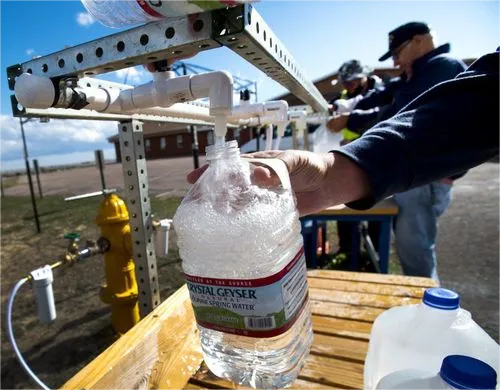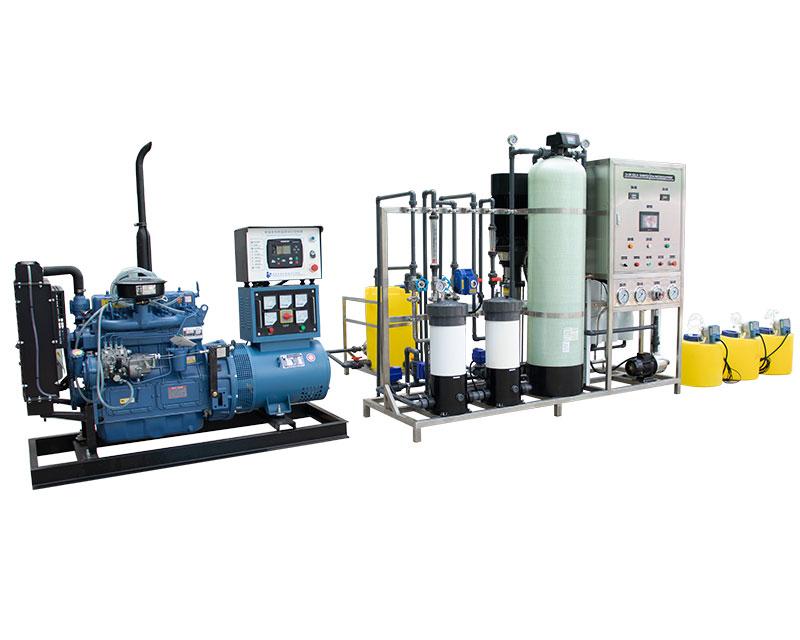- Commercial Reverse Osmosis Water Treatment Systems
- Industrial Reverse Osmosis Water Treatment Systems
- Ultrafiltration UF Water Treatment Systems
- Ion Exchange Water Treatment System
- Containerized Water Treatment Systems
- Customized Water Treatment System
- Bottle Water Filling Line
- Water Mechanical Micron Filters
- Stainless Steel Water Treatment Equipments
- Water Treatment Parts
- Water Sterilization
Is drinking water from seawater drinkable?
In today's increasingly scarce global water resources, seawater reverse osmosis desalination systems have become an important technological means to solve the problem of freshwater shortage with their unique technological advantages. However, for many people, the concept of extracting drinking water from seawater may still be full of unknowns and doubts. So, can drinking water from seawater be consumed?
Technical principles of seawater desalination system
The core technology of seawater reverse osmosis desalination system is to effectively remove salt and impurities in seawater through efficient membrane separation and reverse osmosis technology, thereby obtaining fresh water that meets drinking water standards. This system has not only achieved significant technological breakthroughs, but also achieved significant energy savings, making desalination of seawater a more feasible and sustainable option.

Security guarantee
For drinking water, safety is one of the most important considerations. The seawater reverse osmosis desalination system ensures that the produced water quality meets strict hygiene and health standards through multi-level filtration and detection mechanisms. Throughout the entire conversion process, the system will monitor water quality in real-time, promptly identify and address any potential issues, ensuring that users can drink with confidence.
Save water resources
With the increasing scarcity of global water resources, desalination of seawater has become an important means to effectively alleviate the problem of freshwater shortage. The launch of this advanced seawater desalination system not only achieves efficient conversion in technology, but also achieves significant results in water resource utilization. The seawater desalination system converts seawater into drinkable water, providing a feasible way to solve the problem of insufficient freshwater resources on Earth.

Ecological impact and sustainability
However, although seawater desalination systems provide an innovative approach to addressing freshwater resource issues, their potential impact on marine ecosystems has also raised concerns. The concentrated wastewater generated during seawater desalination, as well as the impact on seawater temperature and salinity during system operation, may have a certain degree of impact on the marine environment. Therefore, in the process of promoting the use of this technology, it is necessary to conduct sufficient environmental impact assessments to ensure the sustainability of the technology and minimize its impact on the environment.

Water Resources Revolution: Drinking Water from Seawater Goes to the World
Driven by seawater desalination systems, drinking water from seawater is gradually entering the world. This is not only a technological leap, but also a new beginning of a water resource revolution. Through advanced technological means, we are confident in overcoming the problem of freshwater shortage and providing cleaner and safer drinking water to the world.

In today's constantly advancing technology, seawater reverse osmosis desalination systems are contributing their efforts to solving the global freshwater shortage problem. Through the application of unique technology, the realization of quality assurance, safe and reliable operation, and the engine of sustainable development, this system is redefining our understanding of water resources. Drinking water from seawater is not only a technological issue, but also a great undertaking related to the sustainable development of global water resources.






